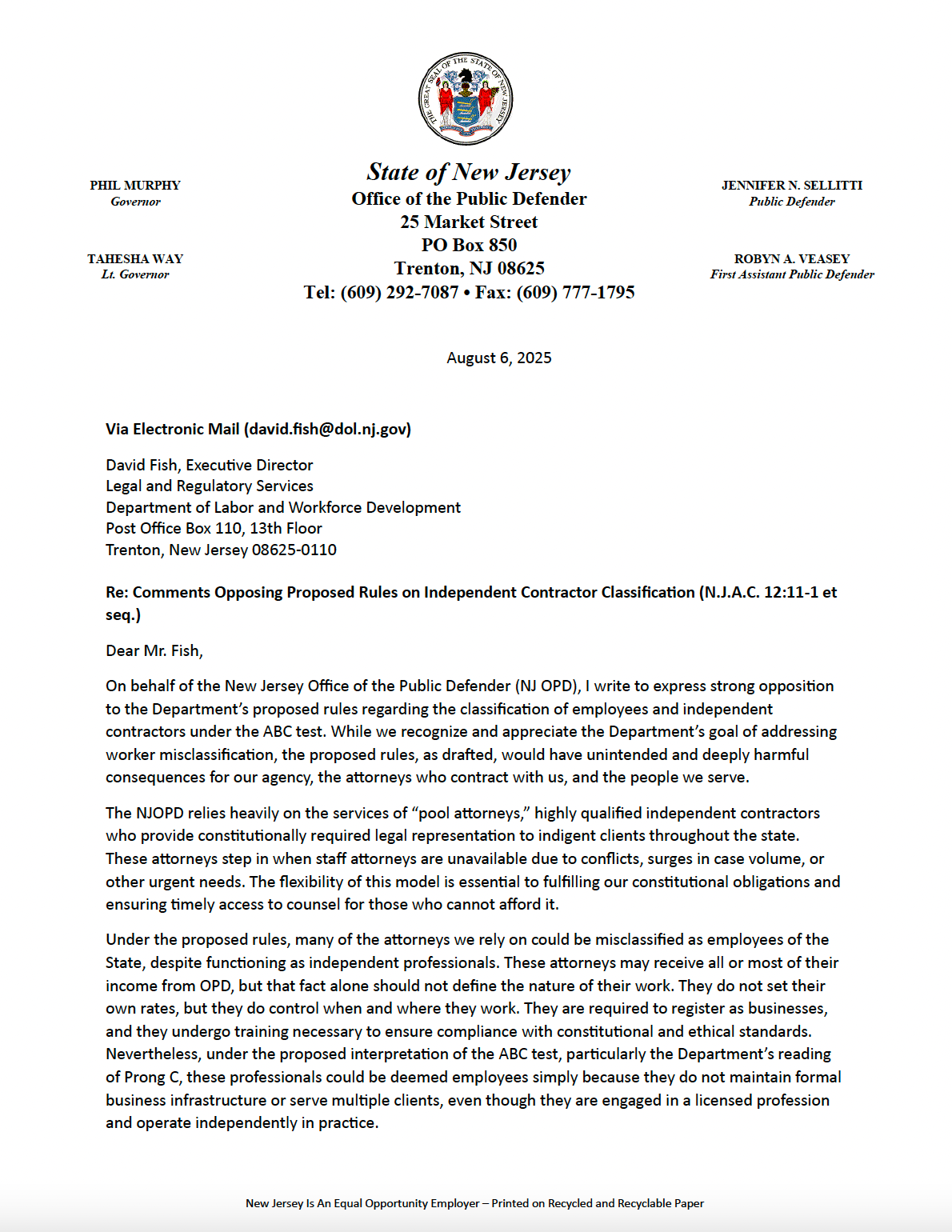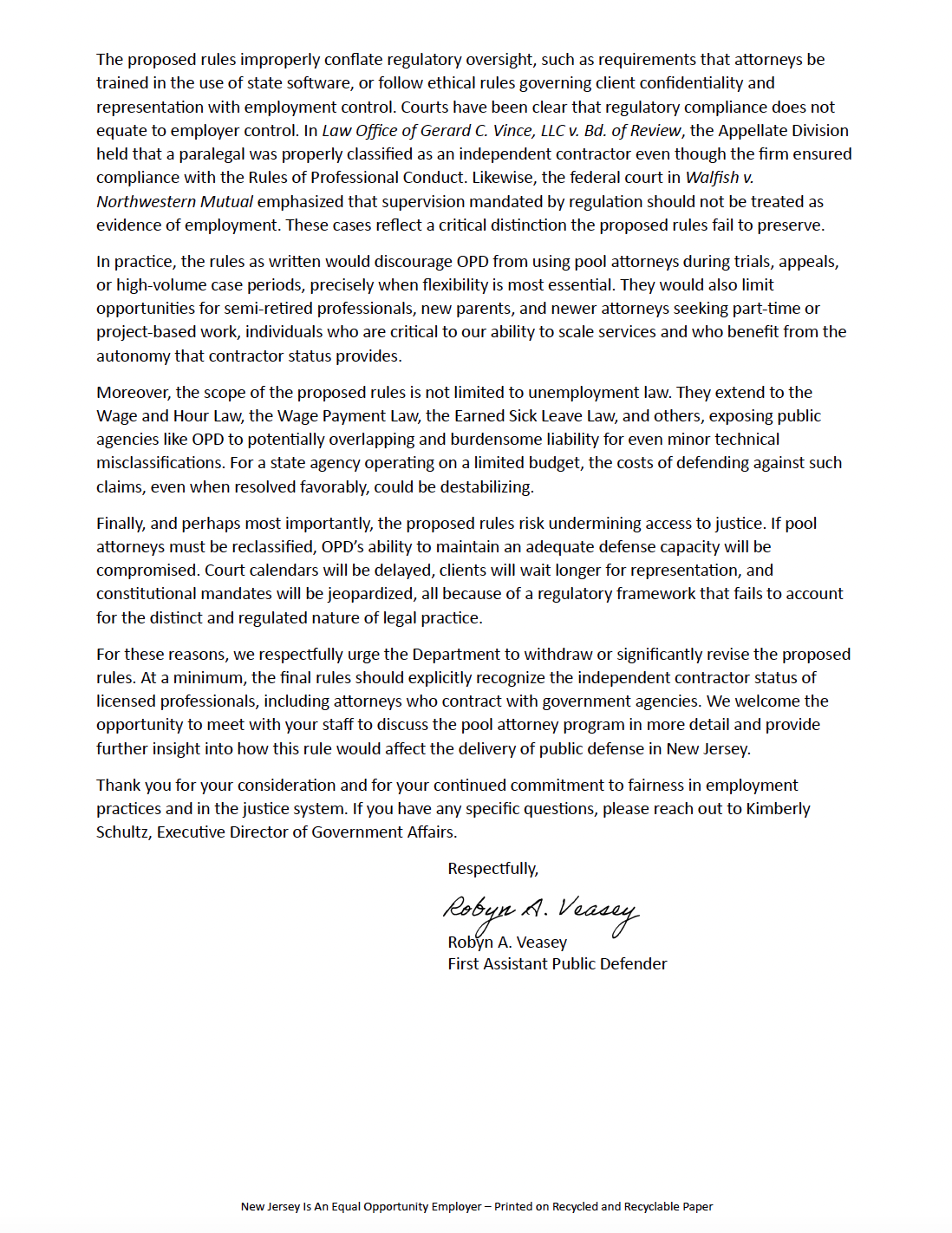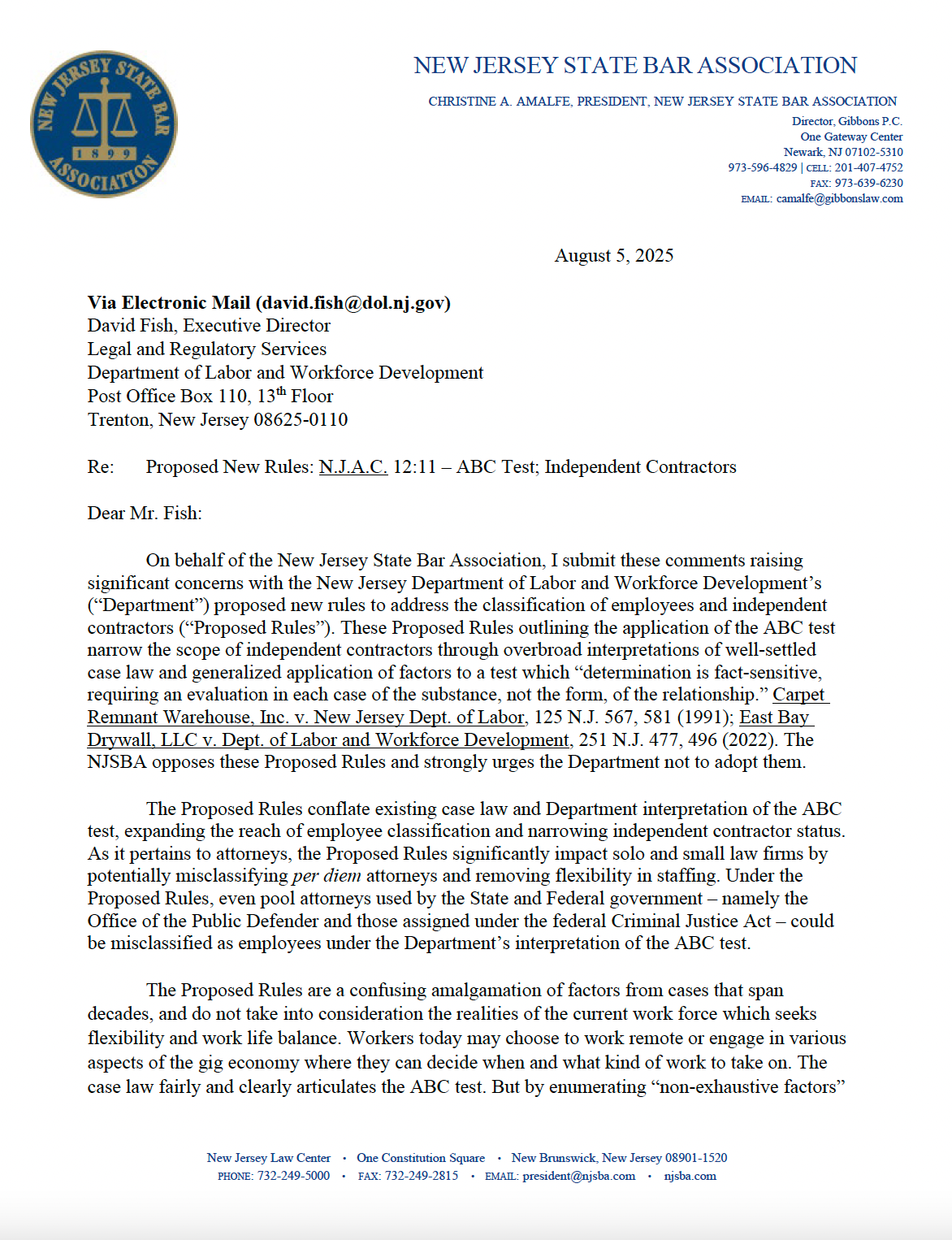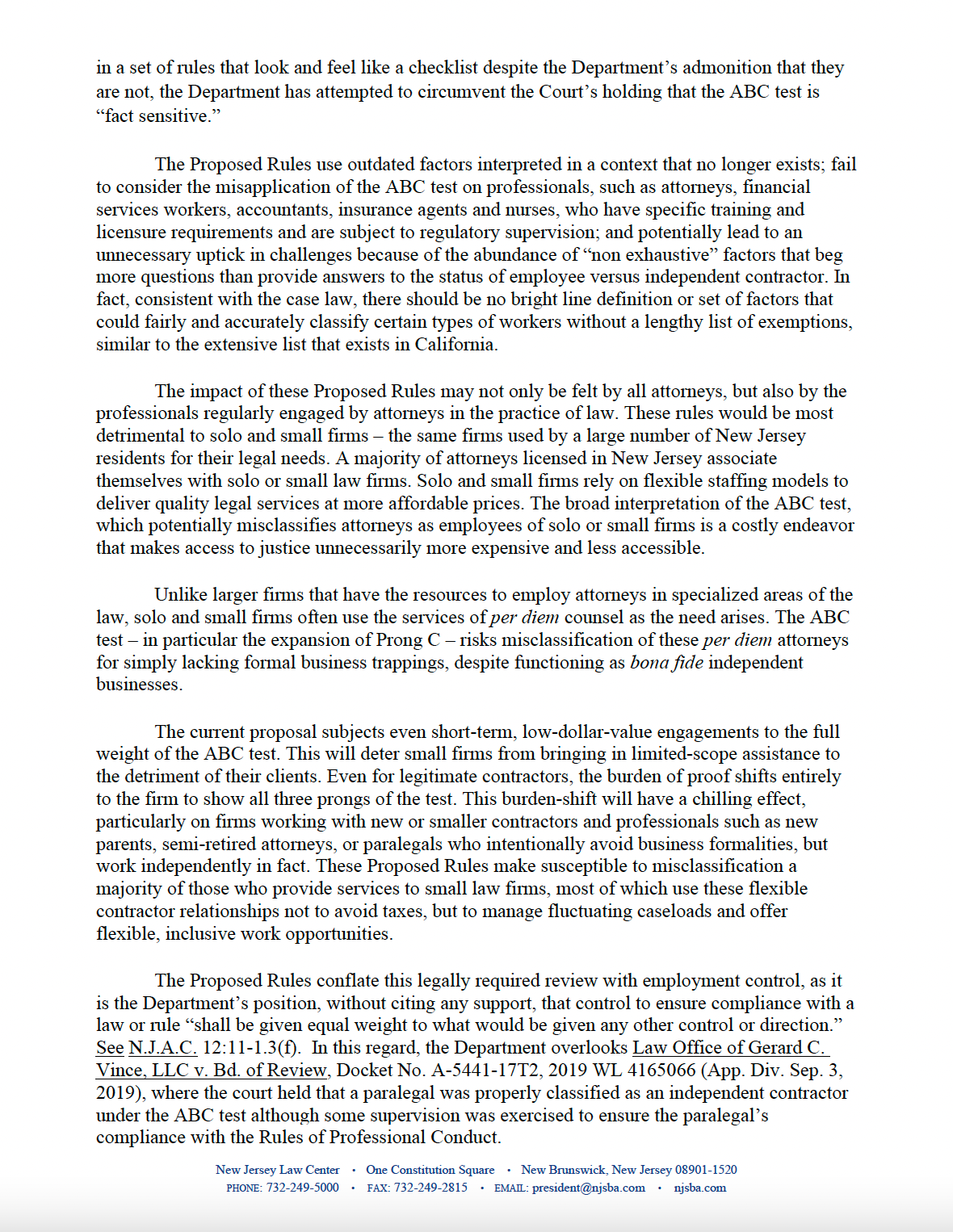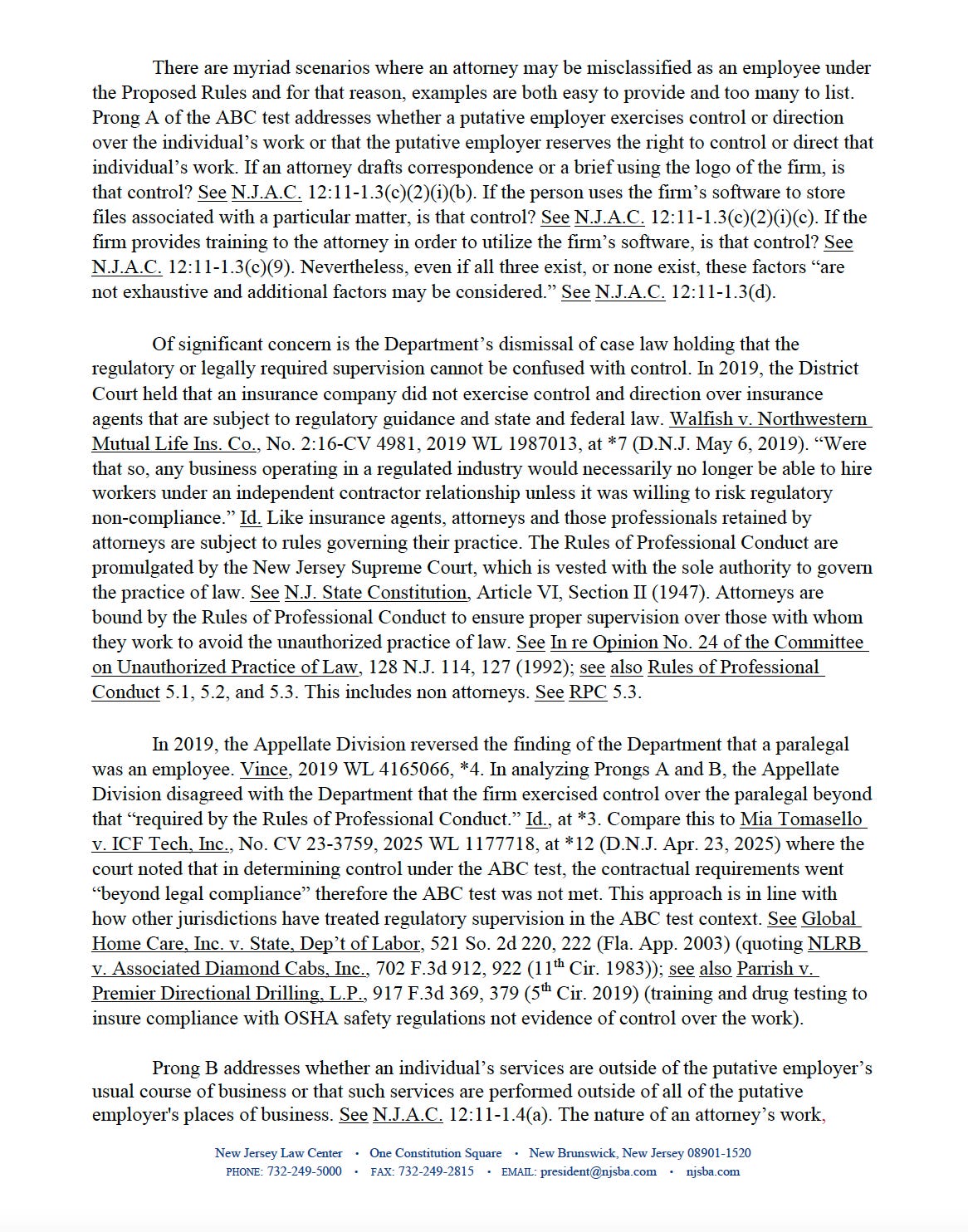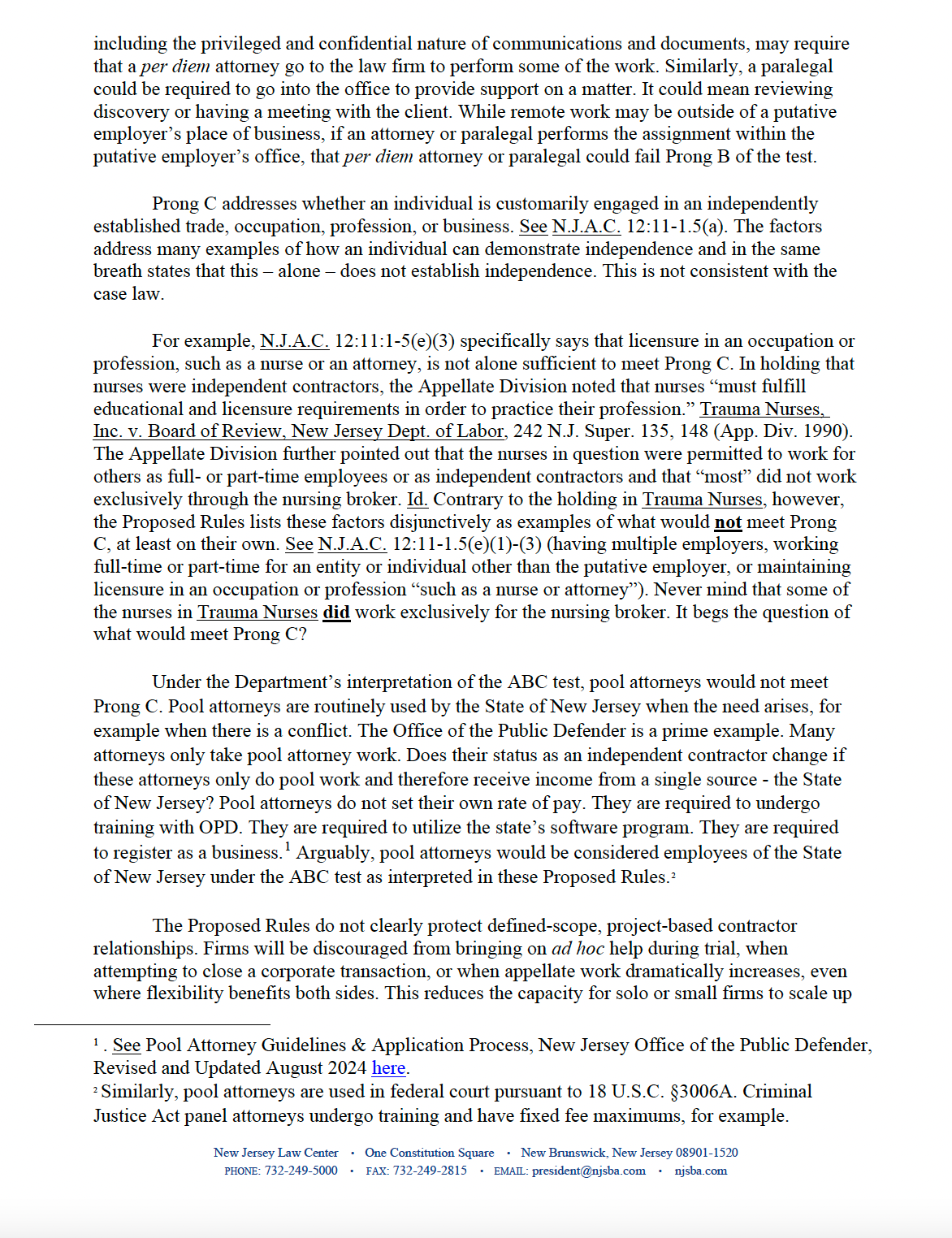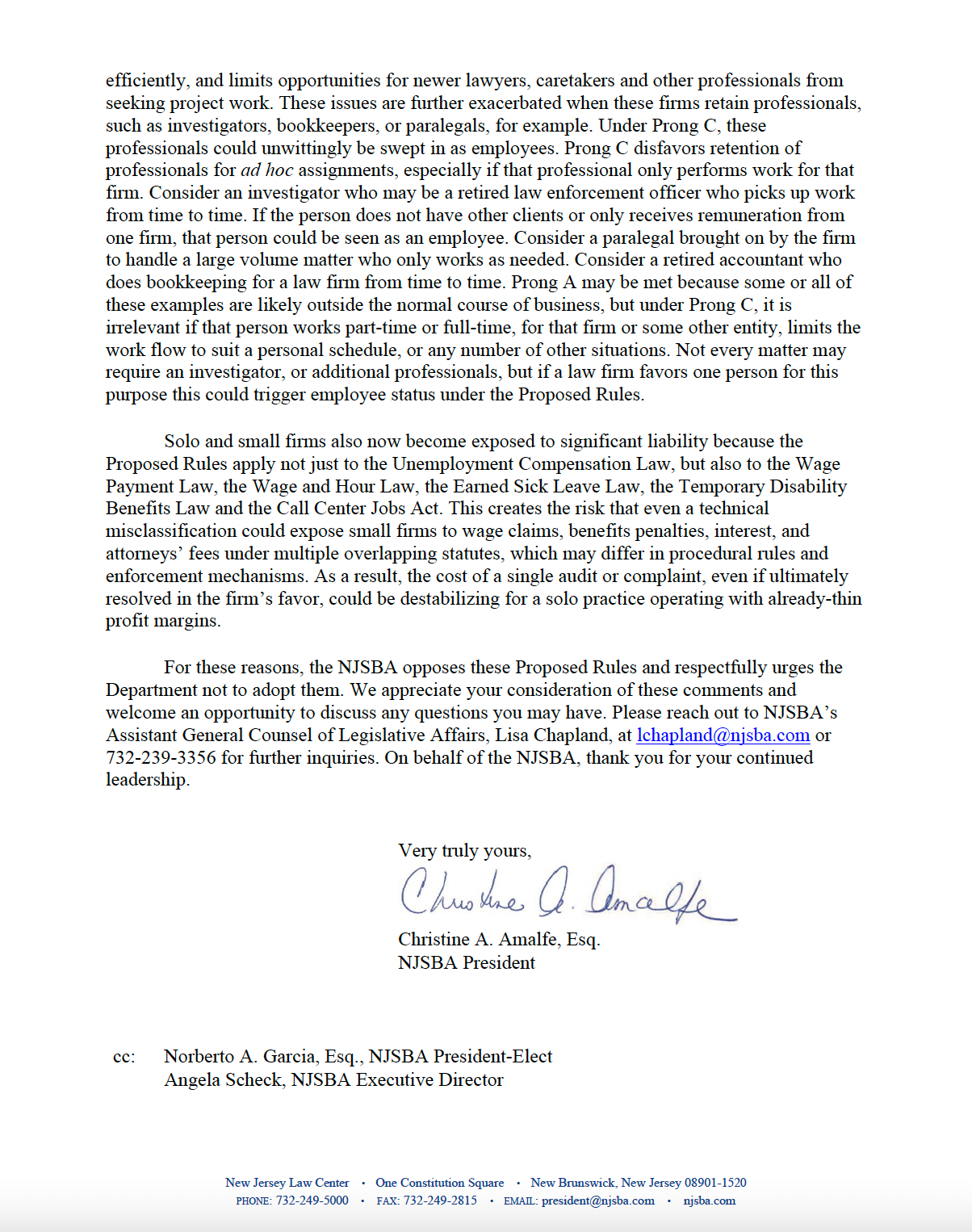'Risk Undermining Access to Justice'
New Jersey's Office of the Public Defender strongly opposes the state Labor Department's proposed independent-contractor rule.
I’m still working my way through the more than 11,000 pages of public comments that the New Jersey Department of Labor & Workforce Development uploaded yesterday as PDFs, with regard to its proposed independent-contractor rule.
Sometimes, though, a truly notable public comment leaps off the screen.
That is the case with a public comment filed by the New Jersey Office of the Public Defender, which expressed strong opposition to the proposed rule.
Its letter states:
“The NJOPD relies heavily on the services of ‘pool attorneys,’ highly qualified independent contractors who provide constitutionally required legal representation to indigent clients throughout the state. These attorneys step in when staff attorneys are unavailable due to conflicts, surges in case volume, or other urgent needs. The flexibility of this model is essential to fulfilling our constitutional obligations and ensuring timely access to counsel for those who cannot afford it.
“Under the proposed rules, many of the attorneys we rely on could be misclassified as employees of the State, despite functioning as independent professionals.”
The comment goes on to express this about the proposed rules:
“They would also limit opportunities for semi-retired professionals, new parents, and newer attorneys seeking part-time or project-based work, individuals who are critical to our ability to scale services and who benefit from the autonomy that contractor status provides.
“Moreover, the scope of the proposed rules is not limited to unemployment law. They extend to the Wage and Hour Law, the Wage Payment Law, the Earned Sick Leave Law, and others, exposing public agencies like OPD to potentially overlapping and burdensome liability for even minor technical misclassifications. For a state agency operating on a limited budget, the costs of defending against such claims, even when resolved favorably, could be destabilizing.
“Finally, and perhaps most importantly, the proposed rules risk undermining access to justice. If pool attorneys must be reclassified, OPD’s ability to maintain an adequate defense capacity will be compromised. Court calendars will be delayed, clients will wait longer for representation, and constitutional mandates will be jeopardized, all because of a regulatory framework that fails to account for the distinct and regulated nature of legal practice. “
Here’s that two-page public comment in its entirety:
New Jersey State Bar Association
The New Jersey State Bar Association also filed a public comment opposing the proposed rule, citing numerous reasons including the possible misclassification of attorneys who work as independent contractors with the Office of the Public Defender:
“Under the Proposed Rules, even pool attorneys used by the State and Federal government – namely the Office of the Public Defender and those assigned under the federal Criminal Justice Act – could be misclassified as employees under the Department’s interpretation of the ABC test.”
The New Jersey State Bar Association’s public comment goes on to add:
“The Proposed Rules are a confusing amalgamation of factors from cases that span decades, and do not take into consideration the realities of the current work force which seeks flexibility and work life balance.”
And:
“The Proposed Rules use outdated factors interpreted in a context that no longer exists; fail to consider the misapplication of the ABC test on professionals, such as attorneys, financial services workers, accountants, insurance agents and nurses, who have specific training and licensure requirements and are subject to regulatory supervision; and potentially lead to an unnecessary uptick in challenges because of the abundance of ‘non exhaustive’ factors that beg more questions than provide answers to the status of employee versus independent contractor.”
And:
“These rules would be most detrimental to solo and small firms – the same firms used by a large number of New Jersey residents for their legal needs. A majority of attorneys licensed in New Jersey associate themselves with solo or small law firms.”
And:
“There are myriad scenarios where an attorney may be misclassified as an employee under the Proposed Rules and for that reason, examples are both easy to provide and too many to list.”
Here are all five pages of the New Jersey State Bar Association’s public comment:
These public comments, while notable, comprise just seven pages of the more than 11,000 pages of comments that the New Jersey Labor Department uploaded to its website yesterday. The vast majority of which appear to be in opposition to the proposed rule.
Stay tuned for more as the digital digging continues.


